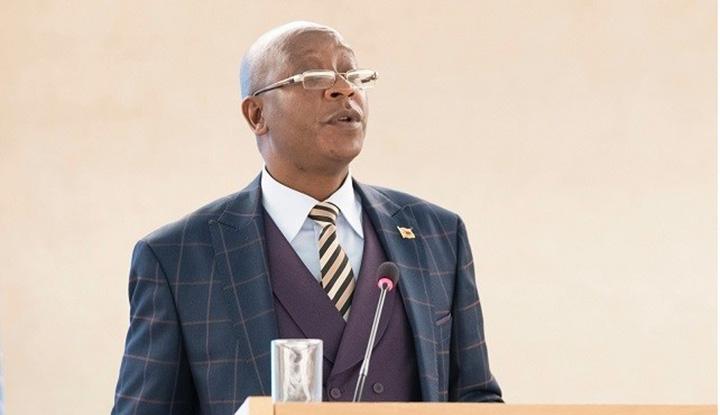News / National
Zimbabwe calls for unconditional removal of sanctions at UN Conference
21 Nov 2024 at 06:16hrs |
0 Views

Minister of Justice, Legal and Parliamentary Affairs, Ziyambi Ziyambi, is leading a Zimbabwean delegation at a high-level United Nations conference to advocate for the removal of sanctions imposed on Zimbabwe by Western nations.
The International Conference on Sanctions, Business and Human Rights, hosted by UN Special Rapporteur Professor Alena Douhan, began today and runs until tomorrow. The event gathers global leaders and experts to examine how sanctions impact UN member states and to discuss the development of principles guiding embargoes, business practices, and human rights considerations.
Zimbabwe's Case Against Sanctions
Speaking ahead of the conference, Minister Ziyambi underscored the severe impact of sanctions on Zimbabwe's economy and its citizens.
"We will present a paper that highlights the negative effects of the bilateral coercive measures, showing the losses we have endured as a nation," Ziyambi said. "Although these sanctions are described as targeted, their effects have been far-reaching, adversely affecting ordinary Zimbabweans and businesses alike."
The minister is expected to emphasize how sanctions have hindered economic growth, disrupted livelihoods, and restricted Zimbabwe's ability to access international financial systems and support.
International Solidarity
Zimbabwe's Deputy Permanent Representative to the United Nations, Mr. Nesbert Samasuwo, noted that Zimbabwe would be supported by allies such as China and Cuba in lobbying for the removal of sanctions.
"The purpose of the conference is to highlight the impact of sanctions," Samasuwo said. "We are part of a group of friends advocating for the lifting of these measures that have negatively affected our country."
Global Implications
The conference aims to explore the broader implications of unilateral sanctions on the enjoyment of human rights globally. Zimbabwe's participation highlights its ongoing efforts to rally international support against sanctions, which it views as unjustified and harmful to its development goals.
Professor Douhan has previously called for reforms to address the unintended consequences of sanctions, aligning with Zimbabwe's stance that such measures disproportionately harm ordinary citizens.
As discussions unfold, Zimbabwe remains hopeful that its call for justice and fairness will gain traction within the international community.
The International Conference on Sanctions, Business and Human Rights, hosted by UN Special Rapporteur Professor Alena Douhan, began today and runs until tomorrow. The event gathers global leaders and experts to examine how sanctions impact UN member states and to discuss the development of principles guiding embargoes, business practices, and human rights considerations.
Zimbabwe's Case Against Sanctions
Speaking ahead of the conference, Minister Ziyambi underscored the severe impact of sanctions on Zimbabwe's economy and its citizens.
"We will present a paper that highlights the negative effects of the bilateral coercive measures, showing the losses we have endured as a nation," Ziyambi said. "Although these sanctions are described as targeted, their effects have been far-reaching, adversely affecting ordinary Zimbabweans and businesses alike."
The minister is expected to emphasize how sanctions have hindered economic growth, disrupted livelihoods, and restricted Zimbabwe's ability to access international financial systems and support.
International Solidarity
"The purpose of the conference is to highlight the impact of sanctions," Samasuwo said. "We are part of a group of friends advocating for the lifting of these measures that have negatively affected our country."
Global Implications
The conference aims to explore the broader implications of unilateral sanctions on the enjoyment of human rights globally. Zimbabwe's participation highlights its ongoing efforts to rally international support against sanctions, which it views as unjustified and harmful to its development goals.
Professor Douhan has previously called for reforms to address the unintended consequences of sanctions, aligning with Zimbabwe's stance that such measures disproportionately harm ordinary citizens.
As discussions unfold, Zimbabwe remains hopeful that its call for justice and fairness will gain traction within the international community.
Source - The Herald
Join the discussion
Loading comments…





































